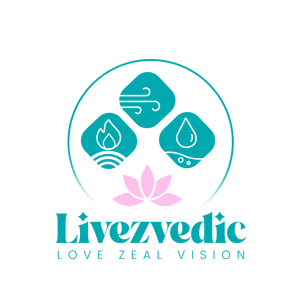Is There a More Advanced Way to Manage Autism?
A Deep Look at Gut Health, Modern Medicine & Ayurveda
3/18/20254 min read


Autism Spectrum Disorder (ASD) is a complex neurodevelopmental condition that affects communication, behavior, and sensory processing. For decades, modern medicine has worked tirelessly to support autistic children through behavioral therapies, pharmacological interventions, and special education. These approaches are valuable. They bring structure, coping strategies, and some relief.
But as we learn more about the underlying biology of ASD, a question quietly arises:
Is there a more advanced way to manage autism?
A way that addresses not just the symptoms—but the root causes?
As the global conversation around autism evolves, one area is commanding increasing attention from researchers, clinicians, and parents alike: the gut-brain connection.
The Gut-Brain Axis: A Groundbreaking Discovery—or an Ancient Truth Rediscovered?
Modern science now acknowledges the gut-brain axis, a dynamic, two-way communication system between the gastrointestinal system and the central nervous system. The gut hosts over 100 million neurons, produces the majority of the body's serotonin, and is home to trillions of microbes—collectively known as the gut microbiome—that influence inflammation, emotion, and cognition.
Studies have revealed something remarkable: children with ASD almost always present with some degree of gut dysfunction. Symptoms like constipation, diarrhea, food intolerances, bloating, and even mood fluctuations often trace back to poor gut health.
This leads us to ask: Could the gut be more than just a side issue in autism? Could it be a key that unlocks deeper healing?
Interestingly, Ayurveda—India’s ancient system of medicine—has placed the gut at the center of healing for over 5,000 years. According to Ayurveda, poor digestion (weak Agni) leads to the accumulation of toxins (Ama), which obstruct both physical and mental channels of the body, including those that govern emotional expression, cognitive function, and immunity.
So while modern science sees the gut-brain axis as a revolutionary concept, Ayurveda simply nods, as if to say, "We’ve known this all along."
The Gap in Modern Autism Care: What’s Missing?
Modern treatments for autism typically involve:
Behavioral interventions (like ABA therapy)
Speech and occupational therapy
Medications for anxiety, aggression, or sleep disturbances
These are critical tools. They help manage daily life, create structure, and improve social and communication skills. But they often stop short of addressing what’s happening within the body—especially in the gut.
Pharmaceuticals, while helpful in some cases, often suppress symptoms rather than resolve underlying dysfunctions. Worse, they introduce more chemicals into a child’s already inflamed system, potentially aggravating gut imbalance and long-term toxicity.
This is the gap.
And it’s a big one.
We’re attempting to rewire behavior without healing the biological and energetic systems the brain relies on to function. It’s like trying to upgrade the software on a computer with faulty hardware.
What Ayurveda Offers: A Functional, Root-Cause Approach
In Ayurveda, the gut is the starting point for all treatment. Especially in children with neurodevelopmental disorders, restoring digestive strength is step one.
Here’s how an Ayurvedic approach to ASD works:
1. Gut Therapy: Cleansing & Strengthening
Gentle detoxification (Shodhana), use of specific gut-healing herbs, and customized diet plans help clear out toxins and rebalance microbial flora. This reduces inflammation, stabilizes mood, and increases nutrient absorption—crucial for brain development.
2. Calming the Nervous System
Herbal preparations and therapies like Shirodhara, Abhyanga (oil massages), and Nasya (nasal therapy) soothe the overactive nervous system, bringing down anxiety, sensory overload, and restlessness.
3. Unblocking Channels of Development
According to Ayurveda, developmental delays occur due to Srotorodha—blockages in bodily channels. These can include:
Toxins from poor digestion or environmental exposure
Gut dysbiosis and inflammation
Metabolic imbalances
Comorbid conditions like insomnia, poor immunity, and food sensitivities
Treatments are designed to unblock these traffic jams so that the child’s innate intelligence and capacity can express fully.
4. Early Intervention: The Window of Opportunity
The earlier this protocol is initiated, the better. From an Ayurvedic standpoint, the brain is still developing rapidly in early childhood. Healing the gut and calming the system in these years can lead to profound developmental leaps—especially in speech, comprehension, and emotional regulation.
So, Which Approach Is Better? Modern Medicine or Ayurveda?
This isn’t a competition. It’s a conversation. And the truth is—both systems have value.
Modern medicine excels at diagnostics, symptom management, and structured therapies. Ayurveda shines in root-cause healing, natural detox, and nervous system regulation.
Where one sees molecules, the other sees energy flows. Where one prescribes pharmaceuticals, the other prescribes herbs, oils, and daily routines.
But here’s the beautiful part:
They agree more than they disagree.
Both acknowledge the gut-brain connection
Both emphasize early intervention
Both aim for developmental improvement and quality of life
Both are evolving based on new research and lived experience
The real future lies in integration.
Not choosing one over the other—but bringing them together with respect and strategy.
A Message to Parents, Caregivers & Professionals
If you are raising or working with a child on the spectrum, ask yourself:
Have we looked deeply enough into the internal systems affecting this child’s behavior?
Have we given the gut the attention it deserves?
Have we explored how ancient healing systems might support modern care?
Your child deserves a comprehensive approach.
One that doesn’t suppress symptoms—but seeks transformation.
One that doesn’t rush—but respects the rhythm of healing.
One that combines the brilliance of modern science with the timeless wisdom of Ayurveda.
This is not about abandoning what works—it’s about adding what’s missing.
So yes, there is a more advanced approach to managing ASD.
It’s called integrative care.
And it begins by listening—to the gut, to the science, and to the ancient voice within that says, “Start at the root.”
